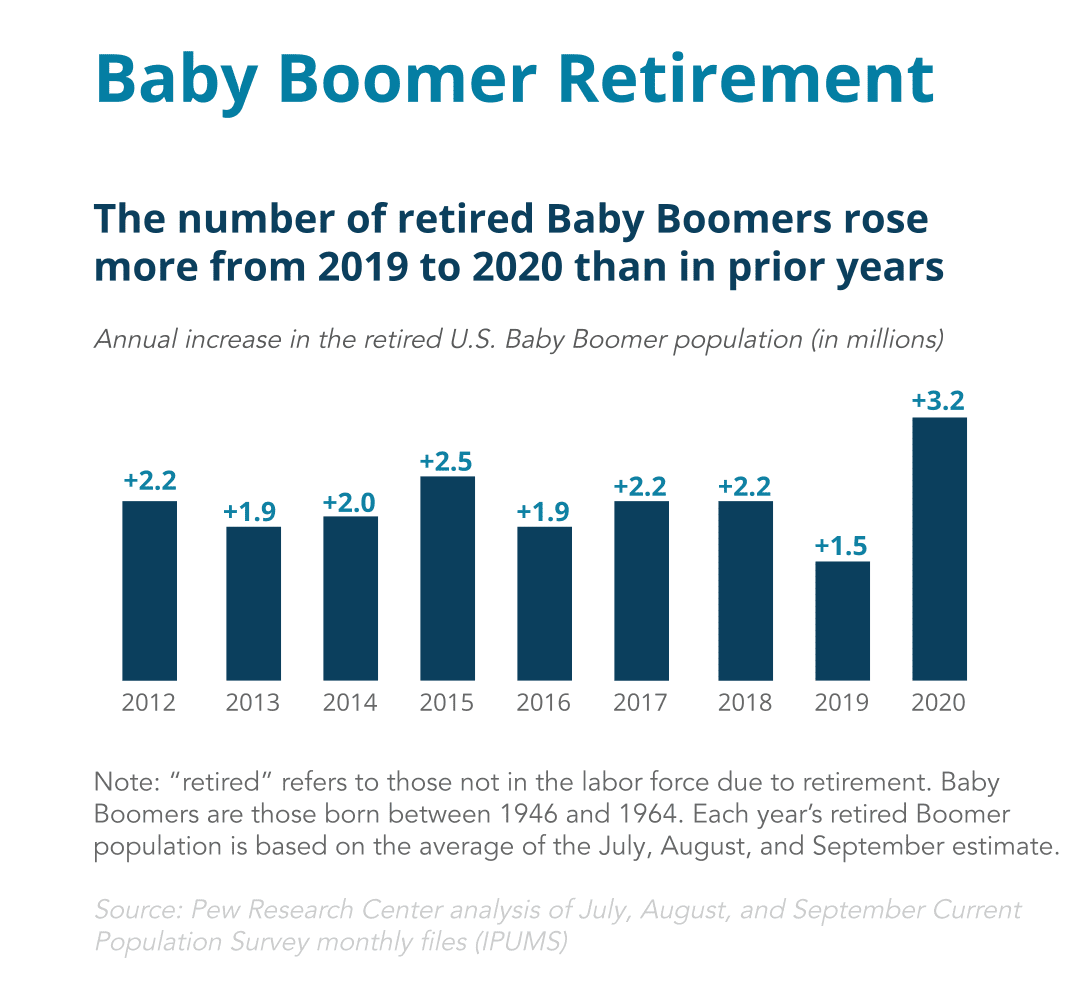
The Great Resignation: Reskilling and Upskilling Baby Boomers May Be the Solution
October 22, 2021 Written by Raymond Lee

Compare Providers
Download our outplacement comparison sheet
Request Pricing
Compare our rates to other providers
Companies are battling for talent at every level, but with Gen Z and Millennials leading the charge in the “Great Resignation,” it leaves Gen X and Baby Boomers a great opportunity for reskilling and upskilling investments.
It’s not just a matter of hiring the right talent – retaining them is just as important. With the Great Resignation underway and employees looking for more rewarding job opportunities, companies must think about their skill development programs, especially those who are later in their careers.
According to the Bureau of Labor Statistics, in 2019, the Baby Boomer generation was the fastest-growing segment of the workforce over all the others. Although in 2020, BLS reported a significant spike in retirements – over double from 2019, many thought leaders suggest that Boomers have decided to retire and reevaluate their life meaning and purpose.
As the number of Baby Boomers retiring each year from the U.S. labor force increases, it doesn’t necessarily mean that they will stop working. BLS reports that the unincorporated self-employment percentage for the over 55 population is double than all of the other age demographics combined. This statistic supports the idea that many Boomers are interested in reinvention and continuing to work in some capacity.

In 2020, the Harvard Business Review (HBR) reported companies have spent over $165 billion on training and development efforts.
The question is, “How much of that is being spent on older workers?” Age bias not only exists in the hiring process, but it also exists in internal career development amongst employees. As employees get older and near pre-retirement ages, there is an assumption in some cases that employees cannot learn and retain new skills. Another assumption asks the question: why would a company want to invest in employees who are nearing retirement when they’re not going to be in the workforce long anyway?
The truth is, you can experience that with employees of any generation.
For those employees who are later in their career, it should always start with a career conversation. It’s unacceptable to flat out ask an employee, “so when are you planning to retire?” but you can say, “let’s talk about your career and opportunities for continued growth.”
As I like to call it, “Are your employees playing to win or are they planning to stay?” In other words, “playing to win” employees are those who are looking for continued growth and development versus “playing to stay” employees who are simply counting down the days to retirement and think developing skills is futile.
Companies should help employees who are “playing to win” upskill and reskill, as they are critical to the diversity and inclusion of the organization. Based on research by Dr. Peter Cappelli, a researcher at Wharton, there is no correlation between age and ability/performance on the job. In fact, Cappelli argues that older employees are more likely to be better communicators, more self-aware, and have a stronger work ethic than their younger counterparts.
A lot of research has been conducted on the benefits of training and developing older workers versus letting them go and hiring new ones. The ROI on retraining is much more cost-effective for diversity, productivity, retention, and the overall bottom line.
Many companies have instituted a number of initiatives to train older workers, such as reverse mentoring and coaching. Information technology, digital, and computer skills continue to be the top skill needed in the workforce today, so reverse mentoring offers a great opportunity for Boomers to learn skills from Millennials and Gen Z.
Of course, despite the efforts companies may take to identify and train those employees looking to delay retirement and continue working, employees are going to leave the workforce and pursue their dreams of leisure, travel, and relaxation with no desire to work.
For those individuals, companies are offering phased retirement programs as early as a year from retirement, which includes reducing the hours in the office, focusing on knowledge transfer, and helping the retiree with planning for their journey in life. This type of transition can have a significant impact on an employee’s well-being, mental health, and in the end, increase their level of engagement and productivity to the organization.
It’s a win-win for everyone.
In need of outplacement assistance?
At Careerminds, we care about people first. That’s why we offer personalized talent management solutions for every level at lower costs, globally.




